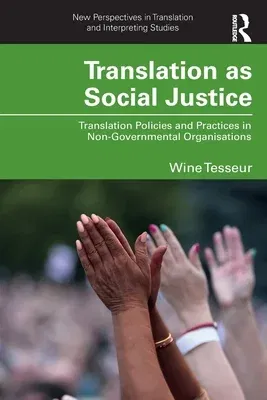Wine Tesseur
(Author)Translation as Social Justice: Translation Policies and Practices in Non-Governmental OrganisationsPaperback, 30 September 2022

Qty
1
Turbo
Ships in 2 - 3 days
Only 1 left
Free Delivery
Cash on Delivery
15 Days
Free Returns
Secure Checkout

Part of Series
New Perspectives in Translation and Interpreting Studies
Print Length
182 pages
Language
English
Publisher
Routledge
Date Published
30 Sep 2022
ISBN-10
1032331313
ISBN-13
9781032331317
Description
Product Details
Author:
Book Format:
Paperback
Country of Origin:
US
Date Published:
30 September 2022
Dimensions:
22.86 x
15.24 x
1.07 cm
ISBN-10:
1032331313
ISBN-13:
9781032331317
Language:
English
Location:
Oxford
Pages:
182
Publisher:
Weight:
272.16 gm